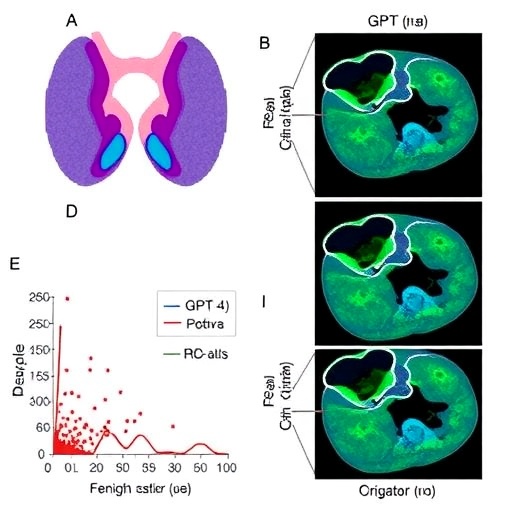
Title: Unraveling the Impact of COVID-19 on Assisted Reproductive Technology Outcomes
The COVID-19 pandemic has brought unprecedented challenges to various sectors, particularly in healthcare. Its reach has extended beyond acute respiratory symptoms, significantly impacting various medical fields, including reproductive health. In a groundbreaking multicenter retrospective cohort study conducted by Wang, R., Lin, Y., and Chen, L., and their colleagues, the implications of COVID-19 infection on Assisted Reproductive Technology (ART) outcomes were meticulously examined in a comprehensive framework. The study sheds light on how SARS-CoV-2 affects fertility treatment results, an area rife with concern and speculation amidst the pandemic.
The methodology employed in this study is particularly noteworthy for its rigorous design. It encompasses a vast array of data collected from multiple centers, ensuring a diverse representation of patient demographics. By incorporating longitudinal data, the researchers meticulously tracked outcomes for ART procedures administered to patients before, during, and after confirmed COVID-19 infections. This comprehensive approach allows for a nuanced understanding of the varied impacts that the virus may have on reproductive health, adding to the body of knowledge that healthcare providers can draw upon as they navigate patient care during these turbulent times.
Key findings from this extensive retrospective study reveal concerning trends in ART outcomes for those who contracted COVID-19. The researchers discovered significant variations in live birth rates between infected and non-infected individuals, raising important questions about viral implications for embryonic development and overall reproductive success. Furthermore, the study identifies potential complications such as altered hormone levels, changes in endometrial receptivity, and even the possibility of increased miscarriage rates, all of which correlate with infections during critical phases of fertility treatments.
In parallel, the emotional and psychological toll of COVID-19 on individuals undergoing ART cannot be overstated. Many patients experienced heightened anxiety and stress during a time when uncertainties loomed large, not only because of the virus itself but also due to disruptions in regular healthcare services. The mental health implications, intertwined with the physical aspects of ART, form another layer of complexity that this study addresses, recognizing that reproductive health encompasses more than just biological factors.
Ultimately, the discourse around ART during a pandemic is not merely about statistics; it’s about people impacted by these statistics. Through feedback and qualitative interviews, the researchers characterized feelings of fear, isolation, and confusion among patients, further highlighting the need for a supportive healthcare environment. The insights gathered offer a much-needed perspective for practitioners aiming to provide empathetic and informed guidance to those embarking on fertility journeys during and post-pandemic.
Moreover, the results of this study suggest a pressing need for policy refinement regarding ART during global health crises. Given that healthcare systems must remain agile and responsive, the study advocates for the development of clear guidelines for ART procedures amid ongoing or future pandemics. Such policies would not only enhance patient safety but also empower healthcare professionals with evidence-based practices that clarify the risk factors associated with viral infections and fertility treatments.
Additionally, the collaboration across multiple centers exemplifies how collective efforts can yield comprehensive insights into pressing healthcare issues. The researchers emphasize the importance of continued collaboration in reproductive health research, arguing that pooling resources and data will be crucial in addressing emergent challenges like COVID-19. By leveraging interdisciplinary expertise and health systems, a more robust understanding of viral impacts on reproduction can emerge, leading to improved clinical strategies that enhance patient outcomes.
As the study highlights the biological ramifications of COVID-19 on ART, it also opens the door to future inquiries into the long-term effects of the virus. The potential for lasting impacts on fertility even after recovery from COVID-19 necessitates ongoing research efforts. Understanding how the body’s response to the virus may influence hormonal balance and ovarian function could unlock new strategies for patient care and intervention.
In conclusion, Wang et al.’s comprehensive multicenter retrospective cohort study illuminates crucial issues regarding the intersection of COVID-19 and ART outcomes. The findings serve as a clarion call for the healthcare community to prioritize reproductive health amidst ongoing challenges, pushing for informed dialogue and evidence-based practices. As the dust settles from the pandemic, it is paramount that the lessons learned from this unprecedented situation translate into tangible improvements in healthcare delivery for future generations.
Subject of Research: The impact of COVID-19 infection on Assisted Reproductive Technology (ART) outcomes.
Article Title: The impact of COVID-19 infection on ART outcomes: a multicenter retrospective cohort study.
Article References: Wang, R., Lin, Y., Chen, L. et al. The impact of COVID-19 infection on ART outcomes: a multicenter retrospective cohort study. J Ovarian Res 18, 156 (2025). https://doi.org/10.1186/s13048-025-01749-5
Image Credits: AI Generated
DOI: 10.1186/s13048-025-01749-5
Keywords: COVID-19, Assisted Reproductive Technology, ART outcomes, fertility, healthcare, reproductive health, multicenter study.
Tags: Assisted Reproductive Technology outcomesCOVID-19 impact on fertility treatmentsfertility treatment challenges during pandemichealthcare provider insights on reproductive healthimplications of COVID-19 on ARTlongitudinal data in fertility researchmulticenter ART studypandemic effects on assisted reproductionpatient care during COVID-19reproductive health during pandemicretrospective cohort study in healthcareSARS-CoV-2 effects on reproduction




